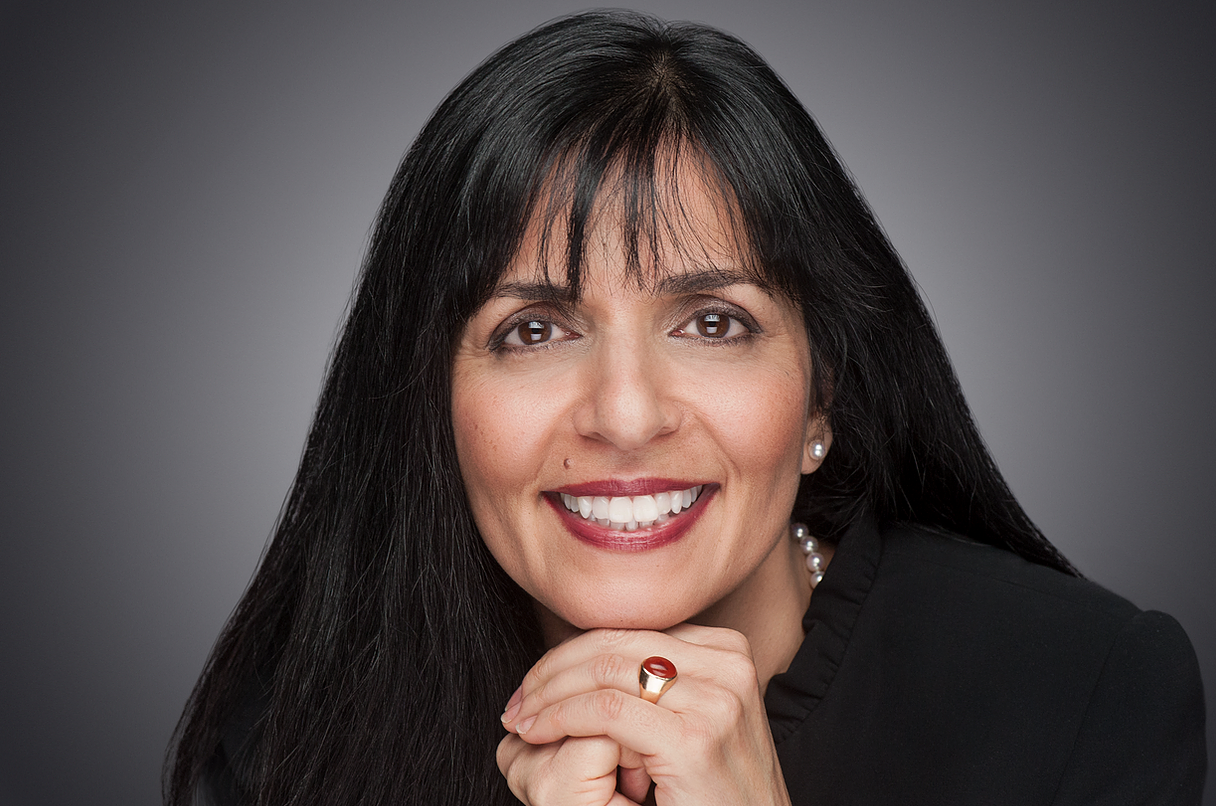Sousan Abadian
Sousan Abadian is an Iranian-born scholar passionate about enhancing human capabilities and wellbeing. She has an independent practice teaching, speaking, and consulting internationally on leadership, collective trauma, and personal, social, and cultural change. Dr. Abadian earned a Ph.D. in Political Economy and Government from Harvard University, an M.P.A. in International Development from Harvard’s Kennedy School, and an M.A. in the Anthropology of Social Change and Development, also from Harvard University.
The daughter of a World Bank economist, Dr. Abadian’s early life was influenced by the questions her father posed her: how to enrich the lives of the most vulnerable, the women and children in rural villages worldwide. She began her career studying effective income generating activities and micro-lending for the poorest of poor in Bangladesh and India and wrote about the income and fertility effects of purdah practices for Muslim women in South Asia. Her econometric analysis, “Women’s Autonomy and its Impact on Fertility” argued for the importance of empowering women and enhancing their capabilities and was published as a lead article in World Development (1996).
Dr. Abadian research on North American Native and First Nation’s communities identified the role played by long-standing collective trauma and sociocultural damage in perpetrating generational cycles of poverty and seemingly intractable conflict. Her doctoral research entitled “From Wasteland to Homeland: Trauma and the Renewal of Indigenous Peoples and Communities” was described by Nobel laureate in economics Amartya Sen as “pioneering” and “highly original.” Her findings were featured in a 2008 Harvard Magazine article, “Trails of Tears, and Hope: ‘Collective trauma’ takes a ferocious toll on human societies—yet there are pathways to healing.” Healing collective trauma requires the exercise of trustworthy leadership and orchestrating culture change. For over two decades, Dr. Abadian learned from and collaborated closely with Harvard’s Professor Ronald Heifetz, contributing to the development of the pioneering Adaptive Leadership framework taught at the Harvard Kennedy School. She became an Associate at Cambridge Leadership Associates, where she facilitated multi-day workshops and gave keynotes on Adaptive Leadership.
From 2010-2012, she was invited to serve as an inaugural Fellow at M.I.T.’s Dalai Lama Center for Ethics & Transformative Values where she first began developing her ARIA Principles. Between June 2017-June 2019, Dr. Abadian served as a Franklin Fellow at the U.S. State Department’s Office of International Religious Freedom, Bureau of Democracy, Human Rights and Labor. Her portfolio included preventing violent extremism, rights of religious minorities in the Middle East and South Asia, gender issues, atrocity prevention, and cultural restoration. The role of religious narratives in perpetuating violence and trauma or ushering in peace and reconciliation has been another thread in Dr. Abadian’s work. She has taught and facilitated conversations between Christian, Jewish, and Muslim heads of seminaries, as well as served as an advisor to the Colombian Padre Leonel Narvaez, Founder of “Schools of Forgiveness and Reconciliation” designed to heal traumatic patterns and build peace in conflict situations. These schools have spread to numerous countries. Dr. Abadian has also served as a “Guiding Voice” for the Sufi Pir Zia Inayat-Khan in the interfaith initiative, Seven Pillars House of Wisdom. As part of her interfaith efforts, Dr. Abadian was encouraged early on to practice radical ecumenism by a mentor, Rabbi Zalman Schachter-Shalomi, and to understand the beauty of a number of faiths, from the inside. She has endeavored to do so, and besides her own birth religion of Zoroastrianism, she has adopted Judaism as a “Jew by choice,” is a Sufi initiate, an ordained Minister of Peace in the Beloved Community (founded by the Franciscan hermit James Twyman), and is trained as a medicine bag carrier within a Peruvian shamanic lineage.
She’s the author of two forthcoming books: The first, When is Consent not Consent? Female Genital Mutilation/Cutting and the Call for Cultural Renewal, is an examination of the nature of women’s consent in FGM/C (and other cultural practices more broadly speaking), the role of intergenerational trauma in the continuation of practices like FGM/C, as well as what constitutes ethical and trauma-sensitive intervention strategies. The second book, Free Me to Love, is an intimate account of her own life’s journey learning to transmute the effects of personal and generational traumas into greater capacity for love, sovereignty, and wisdom.
Dr. Abadian now delivers keynotes, conducts classes, virtual workshops, and programs to varied audiences from the business and nonprofit worlds, for government, religious, and civil society actors. She is the grateful mother of two extraordinary young people, Ariana, 30, and David, 32, and currently divides her time between the Washington, D.C. and the Boston areas.
I first met Sousan on a plane ride back from Washington D.C. to Boston through the wonders of a delayed flight, which in this instance led to an extended conversation, which was delightful both in human and professional domains. To me, she was an amalgam of intellect and humanity, and it was easy to begin the relationship which yielded many occasions where she participated in my symposia and seminars, and where she unstintingly gave up her time to mentor my students, most notably, in a distinctive collaboration between two EPIIC students, Zachary Braiker and Asi-Yahola Boutelle, on their work on trauma resistance and indigenous peoples.

